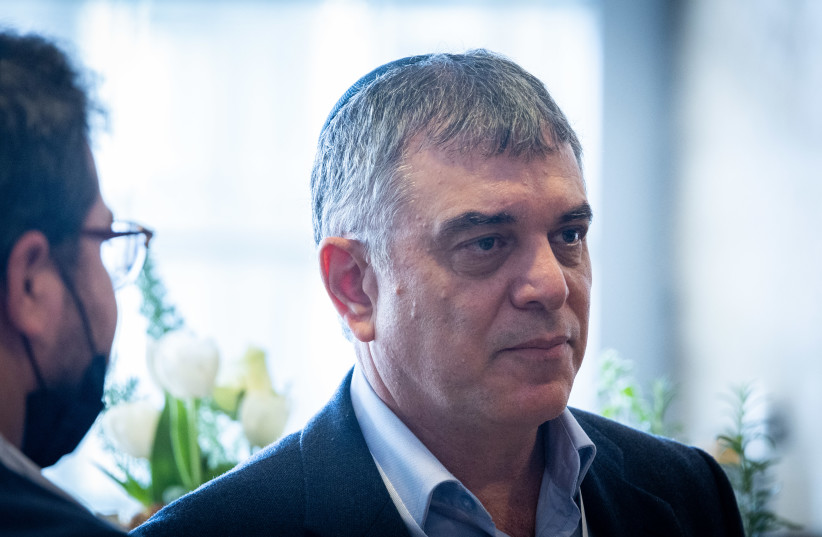The Jerusalem District Court on Tuesday hinted that it will allow the prosecution to proceed with calling witnesses in the public corruption trial against former prime minister Benjamin Netanyahu and return to the allegations of Pegasus police spying at a later date.
In the second day of arguments about what impact the cellphone-hacking allegations should have on the trial, the prosecution appeared to have the upper hand.
Repeatedly, the judges pushed back on defense attacks on the police saying that these dilemmas could be raised at the end of the trial, along with other evidentiary legal questions, and after the judges have a better sense of the impact of differing witnesses on the case.
If the judges move the trial in this direction, they will essentially be saying that however problematic the police conduct might have been, there is not enough evidence that it impacted the trial to take the drastic measure of completely halting the hearing of witnesses.
Netanyahu’s defense lawyers were incensed by this argument as they said that the prosecution is preventing them from even learning the basics of what materials they took from the cellphone of former top Netanyahu aide turned state’s witness Shlomo Filber.
Accordingly, the defense argued both Monday and Tuesday that they cannot even begin to fully defend their clients until the court compels the prosecution to disclose more details about the hacking itself, why it was done and how it related to parallel developments in the investigation.
Netanyahu lawyer Boaz Ben Tzur told the court angrily, “The blood of a prime minister is no less red than the blood of others,” warning of vastly antidemocratic consequences for the country if the court does not crack down on the police’s cellphone hacking tactics.
As on Monday, half of the hearings on Tuesday took place behind closed doors with cyber, prosecution and police officials presenting classified information to the judges outside of the presence of the defense and the media.
In early February, the case was paused when the police spying allegations broke out and led to a pause in the middle of the testimony of prosecution witness Cable Authority legal adviser Dana Neufeld, who was testifying about the legality of the Bezeq-YES merger at the center of the Case 4000 media bribery allegations.
AT THE TIME, lawyers for the defense claimed that the entire trial should be canceled or at least halted for an extended period in order to dig into the allegations against the police for spying.
However, since then, the Netanyahu prosecution team – as well as the broader review performed by Deputy Attorney-General Amit Merari along with Mossad and Shin Bet (Israel Security Agency) officials – last week found that there was no broad conspiracy or wide-ranging law-breaking by the police.
The prosecution team did admit to hacking the cellphone of Filber and to trying to hack the cellphone of defendant Iris Elovitch, wife of Bezeq and Walla owner Shaul Elovitch. They also admitted to considering hacking the cellphone of a third party witness in the case who, based on the description, is likely former top Netanyahu aide turned state’s witness Ari Harow.
Much of the debate the last two days has revolved around whether the hacking of Filber’s cellphone was a sufficient violation to lead to invalidating aspects of his testimony and related evidence.
The prosecution has argued that the cellphone hacking of Filber was connected to an earlier court order which gave them physical access to his cellphone, such that even if the hacking went beyond the court order, it was not a significant violation.
In addition, they argued that nothing which the police cyber unit collected during the hacking was used for the purposes of the indictment.
If true, this could help overcome the defense’s attempt to invalidate Filber-related evidence.
Elovitch lawyer Jacques Chen on Monday said that it was crucial for the court to consider that the Merari report was based on an initial review performed by the police checking itself.
Chen said this was an improper method which harms the validity of the Merari report as well.
Further, he said that Filber decided to flip into a state’s witness shortly after the cellphone hacking took place on February 15, 2018, such that the claim that the hacking had no impact on the case was nonsensical.
He slammed the prosecution for arguing that it does not need to fully give over evidence related to Filber and the hacking.
Moreover, he said that it was bizarre and illegal for the prosecution to say it could neither allow the defense to view the court orders relating to the cellphone hacking nor get a more informed paraphrase at least of what documents it was refusing to pass on to him.

